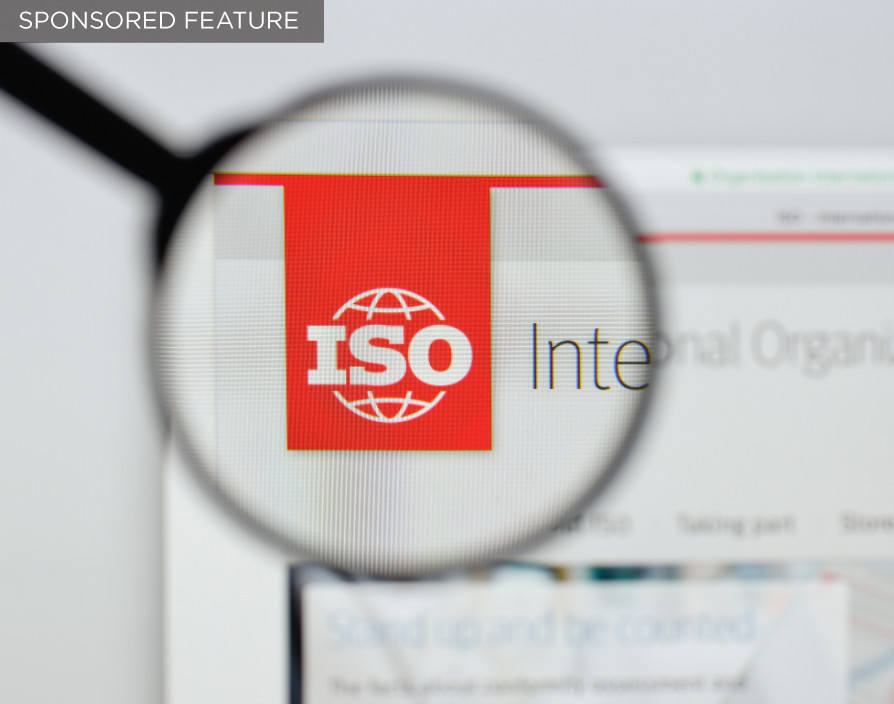How ISO Standards can help small and medium sized firms to grow and become more resilient.
For more than a century, the British Standards Institution (BSI) has been instrumental in helping businesses maximise their potential. As the National Standards Body charged with promoting ‘best practice’ across a range of products, services and industries, the Milton Keynes-based organisation has recently published a White Paper aimed at assisting SME owners, as well as those employed in this sector.
BSI also provides certification and standards-related services to businesses and, among their many partners, is the International Organization for Standardization (ISO) which was formed shortly after the Second World War, and has its headquarters in Geneva, Switzerland.
The majority of business owners and their employees will be familiar with the term ISO Certification; a series of accreditations which steer SMEs towards excellence on a daily basis. As advances in technology and processes occur, the many thousands of ISO standards evolve with them.
The BSI proudly announce on their website: ‘For more than a century we have been challenging mediocrity and complacency.’ And it’s a never-ending road for the organization with high standards. They aspire to ‘enable people and organizations to perform better. We share knowledge, innovation and best practice to inspire trust for a more resilient world ‘ all over the world, every day.’
As for a couple of examples, ISO 9001 refers to Quality Management, while ISO 45001 deals with Health & Safety. And did you know that more than one million ISO 9001 certificates have been awarded ‘ a figure that will only continue to rise. But these examples are just the tip of a rather gigantic iceberg.
According to the BSI’s White Paper, it is small firms which drive the UK economy and account for the vast majority of UK businesses. The role of BSI, and the importance of ISOs to small and medium businesses, can best be understood by reeling off a series of stats.
The White Paper reports: ‘SMEs account for 99.9% of the business population. SMEs account for three-fifths of the employment and around half of turnover in the UK private sector. Total employment in SMEs is 16.8m (61% of the total), while turnover is estimated at £2.3 trillion (52%). Certification demonstrates best practice, reassuring customers and other stakeholders of the quality, effectiveness and reliability of a company’s products and procedures.’
Companies which secure BSI certification will soon realise that an ISO is a valuable marketing tool. The White Paper explains: ‘Our Mark of Trust helps organisations show they have successfully met the requirements of a standard. It also helps consumers, customers and the wider market to recognise and trust organisations that are certified by the BSI. It’s a seal of approval.’
To be awarded an ISO certificate, a business must satisfy a number of points to prove their excellence. Once received, an ISO certificate provides many benefits for a company. The White Paper continues: ‘It gives confidence to their existing customers and clients, while also attracting new ones. It will cut costs and increase profits. Improve staff morale. Provide peace of mind for management. Demonstrate market leadership. Strengthen brand reputation. Gain an advantage over competitors.’
But please don’t take our word for it. Listen to the experiences of the owner of Shed Grounds Maintenance, an 18-year-old Chesterfield company which employs around 20 members of staff. The business has more than 150 clients, and is continuing to grow. Founder and managing director Peter Botham said: We’re small enough to care and give a personal service to clients but large enough to manage contracts of all sizes nationwide. Shed, like many other SMEs, decided to first go for ISO 9001 certification with BSI in 2012 and, four years later, ISO 14001 (Environmental Management).
Botham wanted the business to bear comparison with all their large competitors in terms of professionalism, practices and procedures. He added: Achieving certification to ISO 9001 sends out a clear message that we’re committed to providing a top-class service. All works are subject to this rigorous quality management system, which provides clients with confidence that we have the technical competence and the resources to undertake the tasks required.
As for certification to ISO 14001, he went on: This shows our customers and staff that we care about the environment, and that we operate an effective environmental management system. It addresses the delicate balance between reducing our overall environmental impact and maintaining profitability. By earning an ISO 14001, it demonstrates that the company has complied with legal requirements, which have benefitted the environment by saving on energy and materials.
Botham said: It helps us remain commercially successful as well as environmentally responsible. BSI is well known and respected, so achieving certification ‘ and having the BSI logo on our company documents ‘ is definitely a mark of distinction. It means clients can rest assured that we have been thoroughly assessed as a quality operator in our sector.
Many other growing businesses could reap the same rewards from BSI certification that we have. Many of them could really benefit from adopting robust management processes early in their growth cycle, and I would recommend that they follow us down this path.
This feature only provides a quick snapshot of the benefits of being ISO certified through the BSI. For a thorough description of how your business can access ISO Certification it’s best to read the BSI’s White Paper (18 pages) which can be downloaded by clicking here.
“
Share via:








































